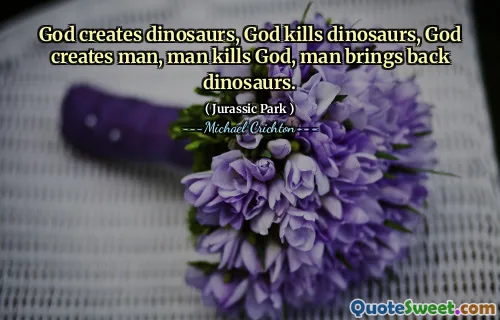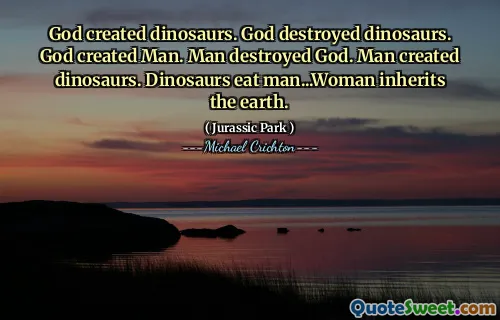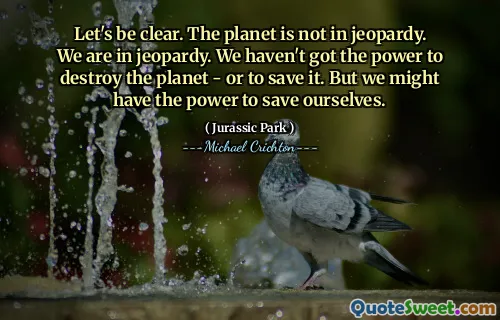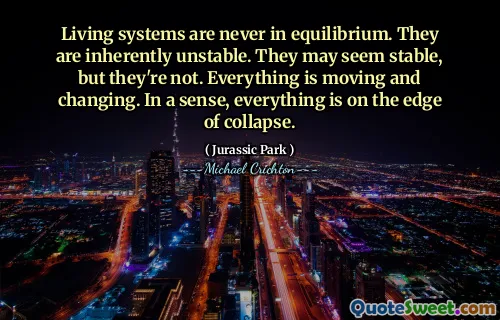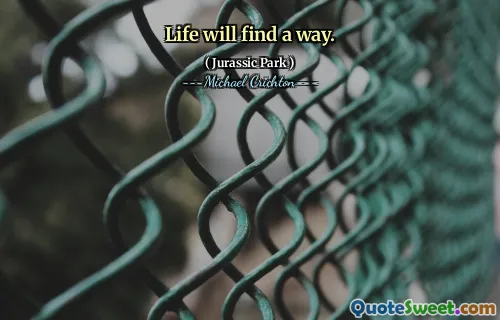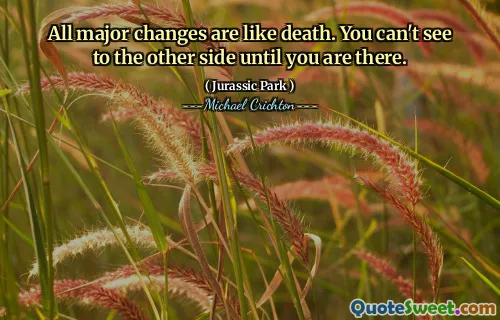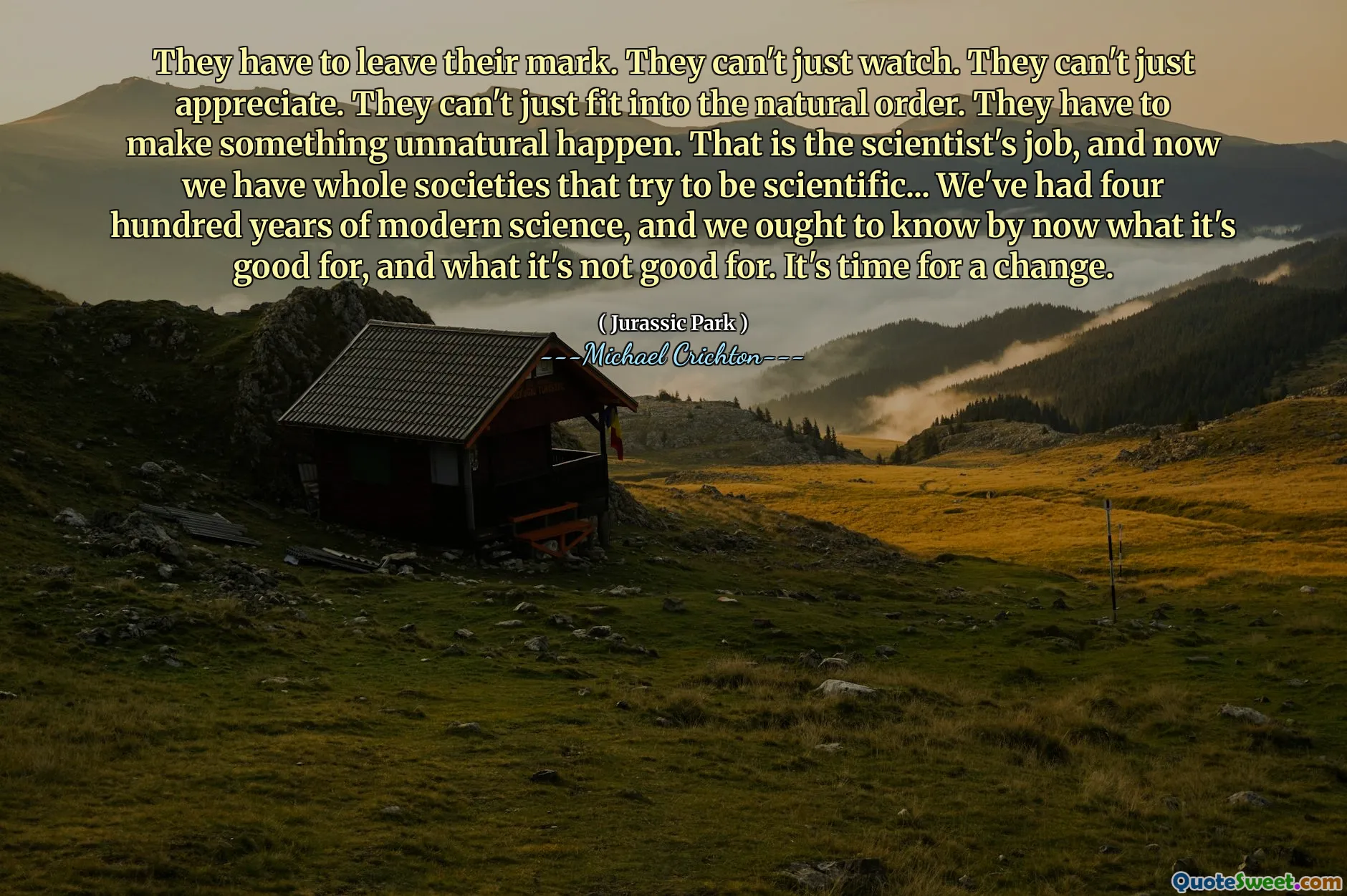
They have to leave their mark. They can't just watch. They can't just appreciate. They can't just fit into the natural order. They have to make something unnatural happen. That is the scientist's job, and now we have whole societies that try to be scientific... We've had four hundred years of modern science, and we ought to know by now what it's good for, and what it's not good for. It's time for a change.
In Michael Crichton’s "Jurassic Park," the author emphasizes the active role of scientists in shaping the world around them. Rather than being passive observers, they are driven to create and innovate, often pushing the boundaries of what is natural. This perspective highlights the necessity for scientists to leave a distinct impact on society by challenging the existing order and undertaking bold initiatives, as their work is not merely about appreciation but about revolutionizing knowledge and processes.
Crichton also critiques the scientific approaches taken in modern society, suggesting that after four centuries of scientific advancement, it is crucial to recognize the limitations and the ethical implications of scientific endeavors. The call for a change points to the need for reflection on the intentions and consequences of scientific actions, urging a reassessment of what science should prioritize. This narrative encourages a broader dialogue on the role of science in our lives and the responsibilities that come with such power.
